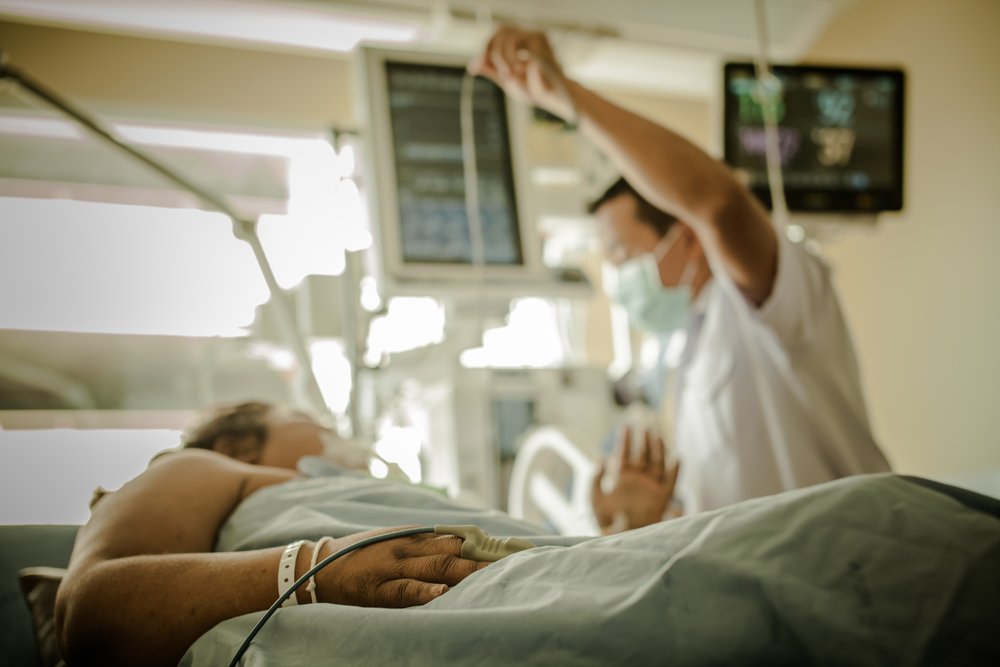Top 10 Ridiculous Comments I’ve Received in the ER

I have learned the hard way that some of my chronic illnesses should NOT be managed in an emergency room. Some circumstances, however, warrant immediate medical attention. It has been difficult to figure out what exactly is an emergency and what is “normal” for a life with chronic hypoxia, pulmonary hypertension and congenital heart disease.
My therapist and I recently created a list of situations that would require immediate 911 emergency attention. For me, taking a trip to the ER is necessary when: my oxygen levels won’t go up despite the oxygen therapy; when I lose consciousness and hit my head (after having multiple concussions I don’t take head injuries lightly); when my pain levels from other co-existing conditions are too high for me to manage at home; and when my heart rate is beating at an abnormal rhythm and I need an immediate pacemaker check.
The reason why we decided to come up with some type of list is because I have had many trips to the ER over the past five years of dealing with frequent syncope episodes related to my condition.
Some of my ER experiences have been great. The ER visits that left me feeling calm and reassured afterward were the times when the doctors knew my condition was chronic. They assured me that everything was okay, and that I was not experiencing anything “new for me.” They recognized the fact that CHD and PH are extremely hard to manage, provided comfort in times of my stress from health anxiety, and made sure to get all the facts from my team of doctors about my medical needs.
My conditions were validated; I was made to feel like a human being. I was given encouragement and positive feedback about my depth of knowledge related to my medical conditions. The times in the ER when the doctors learned something from my rare conditions also were part of the positive experiences.
Unfortunately, I would like to stress that only SOME of these experiences have been great. The majority of them have been horrifying and have left me emotionally traumatized. I know the difference between a doctor who wants to take the time to get to know me and discuss my rare conditions, vs. the doctors who probably are thinking “This is her eighth time here in the past three months. She has anxiety issues. Get her out — fast!
The problem with being treated this way in a hospital is that the chronic illness community needs be able to trust their doctors. Making us feel invalidated certainly will not gain trust. Before they discovered just how serious my condition was, I was treated terribly (even though I have a mile-long medical history including CHD, with numerous anomalies associated with it).
An unwelcome top 10 list
I have created a list of the top 10 most ridiculous comments I have received from some ignorant, pompous medical professionals. If you have ever been aggravated after hearing one of these from a doctor, I am truly sorry. Coming from the girl who carries oxygen around on her back now, you are NOT alone.
(Remember: These were all prior to my diagnosis of PH and hypoxia, and some were prior to my cardiothoracic bypass surgery.)
- “I think this is just anxiety.”
- “Has she ever tried cognitive behavior therapy?”
- “She knows too much about her medical conditions.”
- “The passing out is all in her head.”
- “She is requesting too much testing.”
- “Does she see a therapist?”
- “You should look up conversion disorder. I think it would explain a lot.”
- “She looks great to me…”
- “Have you tried getting on any anti-anxiety medications?”
- “I feel she is suffering from Munchausen’s Syndrome.”
I still have nightmares about some of these wrongful insinuations.
If you ever had a similar experience, just know that it is their lack of awareness to conditions that can’t be detected by a simple blood test and X-ray. Some doctors just don’t want to take the time to dig deeper if it can’t be explained by a simple test.
You should NEVER have to be the victim of a professional’s ignorance or apathy. It’s time they know when they are wrong!
***
Note: Pulmonary Hypertension News is strictly a news and information website about the disease. It does not provide medical advice, diagnosis, or treatment. This content is not intended to be a substitute for professional medical advice, diagnosis, or treatment. Always seek the advice of your physician or other qualified health provider with any questions you may have regarding a medical condition. Never disregard professional medical advice or delay in seeking it because of something you have read on this website. The opinions expressed in this column are not those of Pulmonary Hypertension News or its parent company, Bionews Services, and are intended to spark discussion about issues pertaining to pulmonary hypertension.





Leave a comment
Fill in the required fields to post. Your email address will not be published.